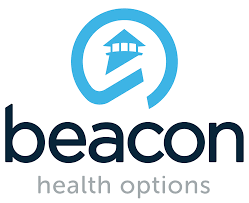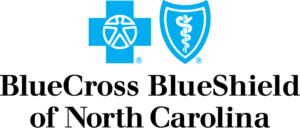The Blanchard Institute
Cocaine Addiction Treatment
Help For Yourself
Help For A Loved One
704-288-1097
Health Insurance Verification Form
Why Choose TBI For Cocaine Addiction Treatment?
Cocaine addiction is a serious problem. It’s one of the most dangerous and addictive drugs in the world, and it can turn your life upside down in no time. And if you think it’s going to go away on its own, think again: cocaine addiction treatment is necessary for recovery.
When someone uses cocaine, their brain releases dopamine—the “happy” chemical in our brains. But when cocaine users stop using the drug, they start to crave more of it because their brains have become accustomed to having that dopamine rush. That’s why so many people who use cocaine find themselves stuck in an endless cycle of addiction: they need more and more of the drug just to feel normal again.
As if that weren’t bad enough, cocaine also has some pretty serious side effects on your health—from heart problems to kidney failure, there are plenty of things that can go wrong with long-term cocaine use. But don’t worry! We’ve got everything you need to know about cocaine addiction treatment right here at The Blanchard Institute.
Cocaine and Addiction – Understanding the Link
When you’re dealing with cocaine addiction, it’s important to understand why you’re addicted in the first place. Cocaine is a stimulant that is both mentally and physically addictive. It increases dopamine levels in the brain and gives users a euphoric feeling of pleasure. This can lead to a cycle of addiction where users need the drug just to feel normal—even if they don’t want to get high anymore.
While many people think that cocaine is a harmless party drug, it can lead to serious health problems like heart attacks, seizures and strokes. It also increases your risk of contracting HIV or Hepatitis C through sharing needles or having unprotected sex with someone who has either disease. Cocaine also causes chronic tooth decay and gum disease due to its dehydrating effect on your body. This can lead to tooth loss if not treated early enough.
There are several different ways to use cocaine and all of them are extremely dangerous. In general, cocaine is a highly addictive substance that can be very deadly if not used in moderation or at all.
What Are the Effects of Cocaine?
Cocaine is an extremely addictive drug that can be very dangerous to your health. If you are addicted to cocaine, you will need to seek treatment for your addiction as soon as possible. While there are many different types of treatments available, some of them prove more effective than others. You can find out which treatments work best by looking at the health effects of cocaine.
The most common health effect of cocaine is respiratory depression or constriction of airways in the lungs. This can lead to difficulty breathing or even death if left untreated. It is important to note that this effect can occur even after just one use of the drug, and it can be fatal if not treated immediately!
Cocaine also causes cardiovascular problems such as irregular heartbeat and cardiac arrest due to its high concentration in blood vessels near the heart muscle itself which leads them to stop pumping blood effectively through our bodies due to overdose levels causing heart failure; this can happen even after just one dose!
Known Cocaine Addiction Treatment Options
1) Treatment Facilities
Facilities like TBI are essential for cocaine addiction treatment. Some of these are inpatient and some are outpatient, depending on your needs and the severity of your addiction. Inpatient treatment allows you to stay at the facility and receive therapy, education, and other forms of treatment 24 hours a day.
Outpatient treatment involves a program that requires you to attend meetings at a specific time each week or month. Many people find that an inpatient program is best for them because it gives them a chance to focus on themselves without worrying about anything else going on in their lives. However, if you’re unable to get away from home or take time off work, an outpatient program may be more appropriate.
Some common types of cocaine addiction treatment facilities include:
Residential treatment centers (RTCs)
These are residential centers where patients live while receiving treatment services on site
Partial hospitalization programs (PHPs)
These are intensive outpatient programs where patients attend daily sessions but do not live at the facility
Intensive outpatient programs (IOPs)
These involve two or three days per week of treatment attended at local hospitals
Cocaine Anonymous
This is a 12-step program with meetings across the country. You will meet with other members who have had similar experiences with cocaine, and they can help guide you through your recovery journey.
Cocaine Anonymous also offers an online version of its program called CA Online. This is an excellent option if you need more anonymity or if there aren’t many meetings near where you live.
2) Behavior Treatment
Behavioral treatments are the most common and effective way to treat a cocaine addiction. A behavioral therapist will help you learn how to change your behavior by teaching you new ways of coping with stress, anger, and other emotions that can trigger cravings for cocaine. Behavior therapy focuses on helping you replace your harmful behaviors with healthier ones. These treatments include:
Cognitive Behavioral Therapy (CBT): CBT helps people identify the negative thoughts and assumptions that lead to drug abuse and teaches them how to change those thoughts. It also helps people develop healthy coping strategies for dealing with stress and other situations that may trigger cravings for cocaine.
Contingency Management: Contingency management involves rewarding patients for specific behaviors they perform while undergoing treatment. For example, if a patient stays sober for two weeks, they might earn points that can be redeemed at the end of treatment as prizes such as gift cards or vouchers for goods and services. This helps patients remain motivated throughout their recovery process and prevents them from giving up before they’ve reached their goals!
Self-help groups like SMART Recovery: Self-help groups like SMART Recovery can be an effective way for recovering addicts to stay on track. These groups provide support, information and encouragement for those in recovery and can help them avoid triggers that might lead them back down the path of addiction.
3) Alternative Therapies
The term “alternative therapies” is a broad one that encompasses many different types of treatment, including acupuncture, massage therapy, yoga and other mind-body practices. Alternative therapies can help people with addictions in a number of ways: they can provide relief from physical pain or discomfort related to withdrawal; they can help improve mood and reduce stress; and they can improve overall health through lifestyle changes such as diet and exercise.
Many people who use cocaine experience intense cravings for the drug, which can make it difficult for them to stop using even if they want to. By providing relief from physical pain or discomfort related to withdrawal and improving mood and reducing stress, alternative therapies help people on their recovery journeys cope with cravings and better maintain sobriety over time. Furthermore, by improving overall health through lifestyle changes such as diet and exercise, these treatments also help prevent relapse after treatment has ended by helping patients develop new healthy habits that will last them throughout life.
4) Medications
When it comes to cocaine addiction treatment, medications are one of the most common factors. Medications can be used to help with withdrawal symptoms and cravings, as well as to help with the underlying issues that lead to addiction.
There are many medications available to treat cocaine addiction. Some of these include:
Buprenorphine (Suboxone)
This medication is a partial opioid agonist. It works by binding to opioid receptors in the brain but does not produce the intense euphoria associated with other opioids like heroin or morphine. This medication can be prescribed in combination with naloxone, which blocks the effects of other opioids such as heroin and morphine while buprenorphine is bound to the opioid receptors in your brain. The combination of buprenorphine and naloxone helps prevent abuse of this drug by reducing its euphoric effects.
Naltrexone (Vivitrol)
This medication is an opioid antagonist that binds to opioid receptors in your brain, blocking them from receiving other drugs like heroin or morphine and preventing them from producing a high or feeling “normal.” It also blocks endogenous opioids produced by your body’s own endorphins, which can help reduce cravings for cocaine if you are still using it after detoxing from opioids. Naltrexone is taken as an injection once every two weeks and often used as a treatment for alcohol dependence in combination with psychotherapy or group counseling. It can also be used to help treat opioid addiction after detox, but it doesn’t work for everyone.
Disulfiram (Antabuse)
Disulfiram is a medication used to treat alcoholism by helping people avoid drinking alcohol. It works by causing unpleasant reactions when combined with alcohol, including nausea and vomiting, headaches and dizziness. The effects are not immediate because it takes about an hour for the body to process alcohol after someone drinks it. It can also be used in cocaine addiction treatment.
Conclusion
If you’re struggling with cocaine addiction, it’s important to speak with your doctor about what treatment options are best for you. Though there are some medications that can help ease the symptoms, they won’t eliminate them entirely. In addition to taking medication prescribed by your doctor, consider talking to him or her about other strategies for coping with withdrawal such as psychotherapy and support groups. If you or a loved one are struggling with cocaine use please don’t hesitate to contact The Blanchard Institute today to learn about our cocaine addiction treatment options.
Cocaine Addiction Treatment FAQ’s
What Is Cocaine?
Cocaine is a powerfully addictive stimulant drug made from the leaves of the coca plant native to South America. Although health care providers can use it for valid medical purposes, such as local anesthesia for some surgeries, recreational cocaine use is illegal. As a street drug, cocaine looks like a fine, white, crystal powder. Street dealers often mix it with things like cornstarch, talcum powder, or flour to increase profits. They may also mix it with other drugs such as the stimulant amphetamine, or synthetic opioids, including fentanyl. Adding synthetic opioids to cocaine is especially risky when people using cocaine don’t realize it contains this dangerous additive. Increasing numbers of overdose deaths among cocaine users might be related to this tampered cocaine.
How Does Cocaine Affect the Brain?
Cocaine increases levels of the natural chemical messenger dopamine in brain circuits related to the control of movement and reward.
Normally, dopamine recycles back into the cell that released it, shutting off the signal between nerve cells. However, cocaine prevents dopamine from being recycled, causing large amounts to build up in the space between two nerve cells, stopping their normal communication. This flood of dopamine in the brain’s reward circuit strongly reinforces drug-taking behaviors. With continued drug use, the reward circuit may adapt, becoming less sensitive to the drug. As a result, people take stronger and more frequent doses in an attempt to feel the same high, and to obtain relief from withdrawal.
Why Is Cocaine So Addictive?
Dopamine is associated with ‘euphoric’ emotions, the regulation of movement, and the processing of reward cues. While individuals using cocaine may feel these highs for a time, once the drug begins to leave the system, they may experience unpleasant reactions, including anxiety, confusion, irritability, and agitation.
These negative effects may lead people to regularly use cocaine in order to avoid uncomfortable withdrawal symptoms, which can drive the development of tolerance and cocaine addiction.
Insurances We Accept











Previous
Next
Health Insurance Verification Form


